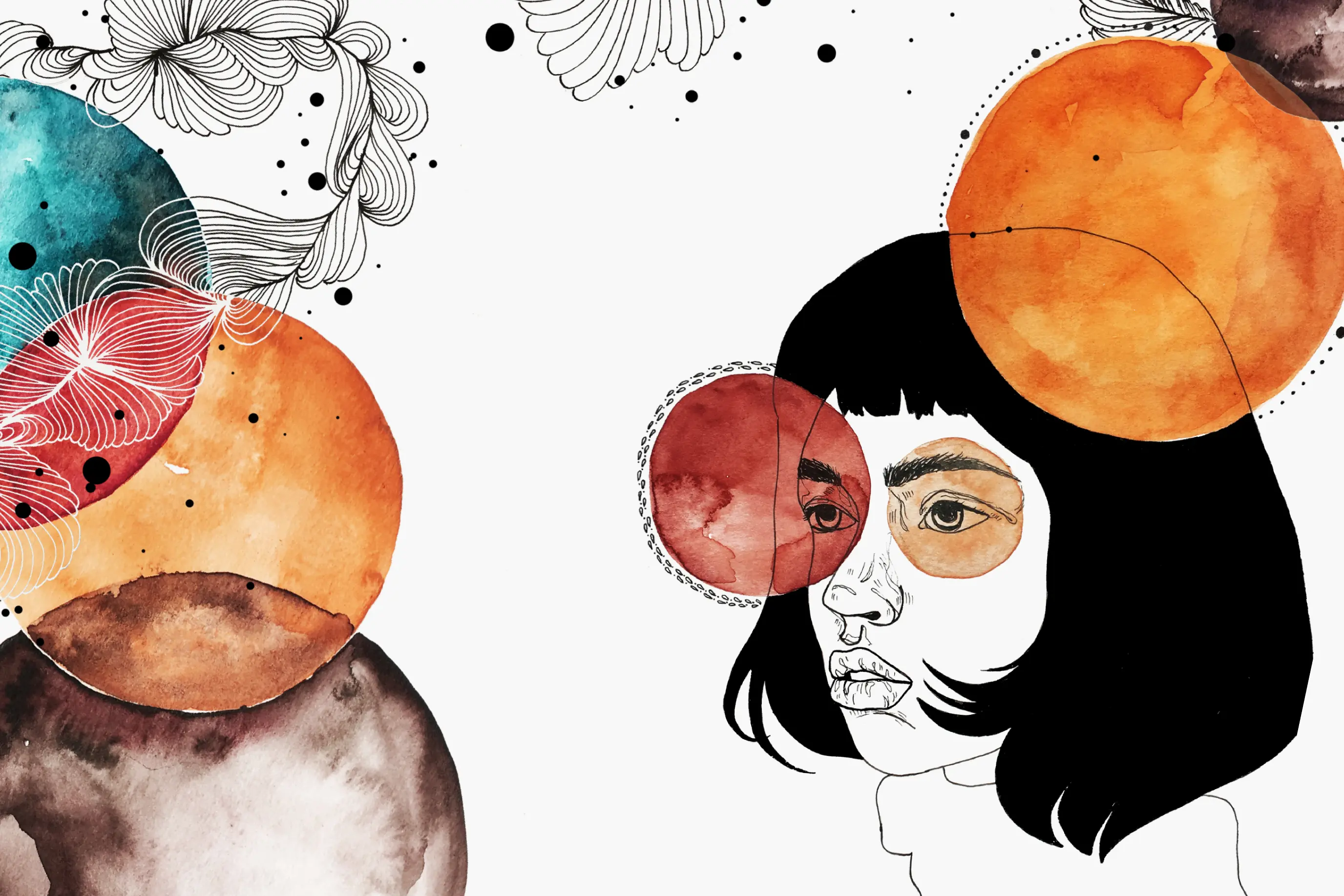Maybe you tripped balls at a music festival, had the time of your life, and never thought about it again. Maybe you took some shrooms with your best friend last weekend while camping and you don’t know what to make of all the uncomfortable feelings that are still bubbling up. Or—maybe you dropped acid in college a decade ago and have been terrified to touch the stuff since. Either way, the emerging field of psychedelic integration therapy (yes, that’s a thing) has some tips for how you can leverage the visions, feelings, and thoughts you had for growth. It’s never too late.
1. Remember Why You Tripped
Did you want some clarity around a challenging relationship? Were you hoping to come to terms with a traumatic experience? If you had a conscious intention going into your trip, it likely shaped what happened. If you didn’t, where you were in your life at that time inevitably still shaped your experience, even if it was unconscious. Beginning to think about what you wanted from the psychedelic can be an important first step towards using the feelings and thoughts that came up in order for you to transform your life. It’s critical to remember that there really is no such thing as a “bad trip” so you don’t shun lessons because they may have felt uncomfortable.
2. Seek an Understanding Community
One of the best ways to remember what happened during a psychedelic experience—and to begin processing it—is to hear about other peoples’ psychedelic experiences. Oftentimes there’s overlap just like, more broadly, there’s overlap in the human experience. If you live in New York, Entheogen Integration Circle is a good resource. In the Bay Area, check out Entheogen Research, Integration and Education. In many major cities like Portland, Boston, and Los Angeles, community-led circles can be found on the website Meetup. You can also try connecting to a community through a local integration therapist listed on MAPS’ online database, by going to psychedelic events and conferences in your area, or by visiting MAPS’ Zendo Project tent, which posts up at major festivals.
Try connecting to a community through a local integration therapist listed on MAPS’ online database
3. Honor the Limitations of Your Mind
As anyone who has done a psychedelic knows, psychedelic experiences frequently transcend words (in clinical trials, they call this quality “ineffable”). The same goes for the psychedelic integration process. You can tap into that unconscious wisdom through art, movement, dance, bodywork, or really anything that allows you to tune in. It can be particularly powerful if you recall sights, sounds, visions, and feelings you had during your trip. A common tool for doing this is journaling right after the experience—or even during it, if you can. You can also try listening to the music you listened to while tripping, closing your eyes and vividly imagining the sensations you had, or trying to draw any patterns or hallucinations you saw. This process, called “embodiment,” can be especially powerful in the days and weeks following a trip, but it’s never too late to start.
It can be particularly powerful if you recall sights, sounds, visions, and feelings you had during your trip
4. Cultivate a Meditation Practice
It’s never a bad idea to cultivate a meditation practice, but clinical trials have found that actually following through with it is a lot easier for people after a trip. If you’ve never meditated before, you might consider trying for 10 minutes per day in the weeks following a psychedelic experience. If you already meditate, you might try deepening your practice by lengthening it or sitting multiple times a day instead of once. You can also try priming yourself for this renewed commitment to meditation by meditating in the days leading up to your trip and setting an intention for yourself.
5. Consider a Psychedelic Integration Therapist
Not everyone has the resources for or needs a psychedelic integration therapist. That being said, they do exist around the country and can be found through MAPS’ online database. If there isn’t one in your area, many of these therapists also do sessions via video chat. It could be worth considering a few sessions, particularly if you’re having a hard time following a recent trip or you feel like you’ve buried a challenging trip from a long time ago. Clinical trials have found that the therapy sessions after a trip play an important role in helping people process what happened.
How to Grow Shrooms Bundle
Take Both of Our Courses and Save $90!
For more information on preparing for and processing a trip, check out the Zendo Project’s Psychedelic Harm Reduction Manual.
Interested in having a psychedelic experience, but don't know where to start? Get our definitive guide on trusted legal retreat centers, clinical trials, therapists, and more.



